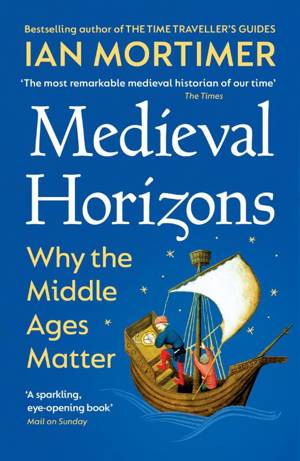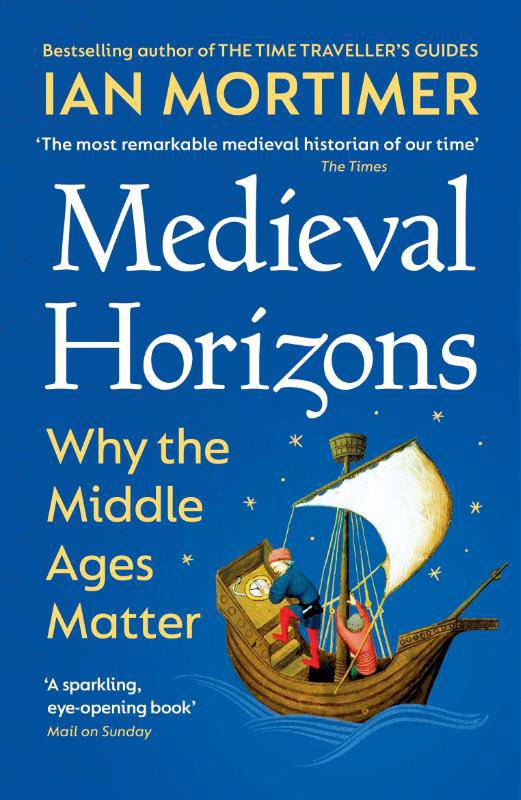
- Afhalen na 1 uur in een winkel met voorraad
- Gratis thuislevering in België vanaf € 30
- Ruim aanbod met 7 miljoen producten
- Afhalen na 1 uur in een winkel met voorraad
- Gratis thuislevering in België vanaf € 30
- Ruim aanbod met 7 miljoen producten
Zoeken
€ 15,45
+ 30 punten
Uitvoering
Omschrijving
We tend to think of the Middle Ages as a dark, backward and unchanging time characterised by violence, ignorance and superstition. By contrast we believe progress arose from science and technological innovation, and that inventions of recent centuries created the modern world.
We couldn't be more wrong. As Ian Mortimer shows in this fascinating book, people's horizons - their knowledge, experience and understanding of the world - expanded dramatically. Life was utterly transformed between 1000 and 1600, marking the transition from a warrior-led society to that of Shakespeare.
Just as The Time Traveller's Guide to Medieval England revealed what it was like to live in the fourteenth century, Medieval Horizons provides the perfect primer to the era as a whole. It outlines the enormous cultural changes that took place - from literacy to living standards, inequality and even the developing sense of self - thereby correcting misconceptions and presenting the period as a revolutionary age of fundamental importance in the development of the Western world.
We couldn't be more wrong. As Ian Mortimer shows in this fascinating book, people's horizons - their knowledge, experience and understanding of the world - expanded dramatically. Life was utterly transformed between 1000 and 1600, marking the transition from a warrior-led society to that of Shakespeare.
Just as The Time Traveller's Guide to Medieval England revealed what it was like to live in the fourteenth century, Medieval Horizons provides the perfect primer to the era as a whole. It outlines the enormous cultural changes that took place - from literacy to living standards, inequality and even the developing sense of self - thereby correcting misconceptions and presenting the period as a revolutionary age of fundamental importance in the development of the Western world.
Specificaties
Betrokkenen
- Auteur(s):
- Uitgeverij:
Inhoud
- Aantal bladzijden:
- 256
- Taal:
- Engels
Eigenschappen
- Productcode (EAN):
- 9781529920802
- Verschijningsdatum:
- 22/02/2024
- Uitvoering:
- Paperback
- Afmetingen:
- 129 mm x 196 mm
- Gewicht:
- 194 g

Alleen bij Standaard Boekhandel
+ 30 punten op je klantenkaart van Standaard Boekhandel
Beoordelingen
We publiceren alleen reviews die voldoen aan de voorwaarden voor reviews. Bekijk onze voorwaarden voor reviews.











